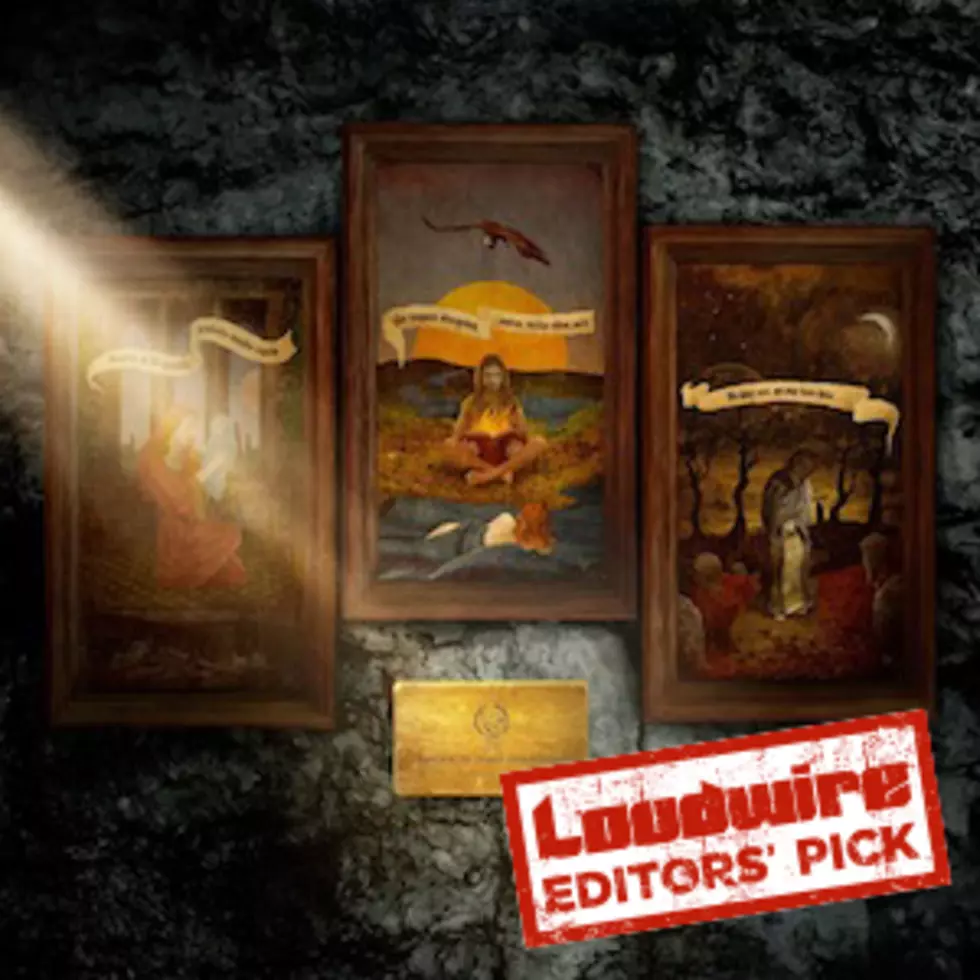
Opeth, ‘Pale Communion’ – Album Review
'Pale Communion' is an Opeth album. Take in that sentence in for a second, because without frontman Mikael Akerfeldt's demonic gutturals and Opeth's death metal dynamic, slighted fans may give 'Pale Communion' the 'Heritage' treatment. Despite complaints in response to the band's shift back into a softer prog sound with 'Heritage' in 2011, that disc was an Opeth album, and so is 'Pale Communion.'
The way 'Heritage' polarized Opeth fans was truly unique and somewhat confusing, mostly because Opeth never make the same album twice -- not even close. The beautifully soothing 'Damnation' album and the brutally heavy 'Deliverance' records were (and still are) both celebrated by fans, despite the paradoxical discs only being released five months apart from each other. So, why the backlash now when Opeth fans have historically welcomed drastic change? There's no universal answer, but what's certain is that 'Pale Communion' is next for examination.
'Pale Communion' explores the heavy progressive rock elements covered in 'Heritage,' takes a page from 'Damnation' and injects brand new dynamics into Opeth's vast sonic library. Furthermore, 'Pale Communion' features perhaps the most straight-forward approach to showcasing the band's massive Porcupine Tree / Steven Wilson influence.
'Pale Communion' begins with 'Eternal Rains Will Come,' giving the listener a comprehensive soundscape of what's to come. Progressive rock and classic doom are just two of the main ingredients leading off the track, which transforms into a beautiful menagerie of piano, mellow guitar work and gorgeous vocal harmonies.
The album's first single, 'Cusp of Eternity,' is very focused on Akerfeldt, whose clean singing style remains captivating as he projects his voice with a forceful diaphragmatic technique found in no previous Opeth album. The fresh vocal method is spotlit even brighter in 'Moon Above, Sun Below,' the album's longest and perhaps most stylistically complete song.
Moving onward, beauty places itself as the central focus of the acoustically driven 'Elysian Woes,' where Akerfeldt sings, "There is a bond between us / Even if it's frayed, it's unbreakable." Beyond the instrumental intermission of 'Goblin,' the track 'River' is the high point of 'Pale Communion' in terms of elegance. The song's instrumental section is expertly crafted with rich interactions between acoustic guitar, electric guitar, bass, drums and keyboards. Akerfeldt experiments with heavenly (though at some times shaky) falsetto vocals before returning to his main wheelhouse at around the three-minute mark.
With just two songs left on 'Pale Communion,' 'Voice of Treason' conveys the heaviest moments of Opeth's 11th studio album, mixed in with well-placed strings and sinister keyboard work. The strings return for the album's finale, 'Faith in Others,' faintly mimicking the guitar and vocal lead which later becomes the track's most identifiable feature. Humming along with Akerfeldt is pure bliss while soaking in the warmth of 'Faith in Others,' so take some time to immerse yourself into yet another fantastic 'Pale Communion' piece.
'Pale Communion' is an Opeth album, and its unmistakably an album that Opeth have been dying to create. It's a step up from 'Heritage' in many ways, perhaps most notably in its sophistication. "Metal" and "sophistication" are two words that don't always blend together, but let's be real, no matter what style Opeth fans prefer, we all discreetly point our pinky fingers outward while enlightening ourselves with Opeth's music. So sit back like Hannibal Lecter taking in Bach's 'Goldberg Variations' and engross your filthy souls with one of Opeth's greater accomplishments.
Opeth's Mikael Akerfeldt Plays 'Wikipedia: Fact or Fiction?'
More From Loudwire









